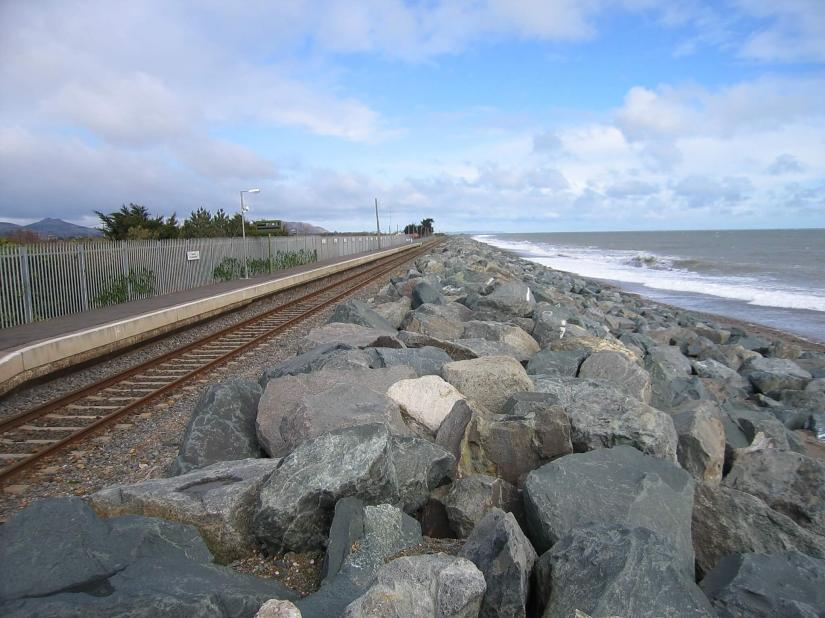 The world’s oceans are warming increasingly fast. The planet could face sea levels 30 cms higher in 80 years.
The world’s oceans are warming increasingly fast. The planet could face sea levels 30 cms higher in 80 years.
While 2018 was probably only the fourth warmest year for global surface temperatures, it is likely to have been the hottest year ever for the oceans. The previous such year was 2017, and before that 2016.
And if global warming follows the pattern predicted by computer simulations, then at present rates the extra temperature of the oceans will cause a thermal expansion – warm water is always less dense than cold water – by 30 centimetres by the end of the century.
That is 30cms of sea level rise on top of all the extra rising sea water delivered by melting ice caps and glaciers on the world’s continents.
The planet is 71% ocean and the clear blue water absorbs an estimated 93% of all the excess heat trapped by the greenhouse gases emitted by humans as they burn fossil fuels to power the global economy.
And a quartet of scientists from China and the US calculate that if the world goes on burning fossil fuels under the notorious business-as-usual scenario, then by the end of the century the top 2,000 metres of the high seas will have warmed by 0.78°C, causing 30cms of sea level rise simply by ocean expansion.
These warmer waters, inevitably, will in turn and less directly accelerate the already increasingly rapid melting of Greenland’s glaciers and surface ice, and eat away at the floating ice shelves that for the moment slow the great glaciers of the Antarctic continent.
Warmer sea waters are linked to the propagation of hurricanes, typhoons or tropical cyclones; to ever heavier and more devastating rainstorms; and to prolonged droughts, heat waves and forest fires.
OCEANS ARE INDICATOR
“If you want to see where global warming is happening, look in our oceans. Ocean heating is a very important indicator of climate change, and we have robust evidence that it is warming more rapidly than we thought,” said Zeke Hausfather, of the Energy and Resources Group at the University of California, Berkeley, and a co-author of the study in the journal Science.
“While 2018 will be the fourth warmest year on record on the surface, it will most certainly be the warmest year on record in the oceans, as was 2017 and 2016 before that. The global warming signal is a lot easier to detect if it is changing in the oceans than on the surface.”
The research is based on readings from Project Argo, a fleet of nearly 4,000 floating robots that periodically dive to 2,000 metres depth to measure ocean temperatures, chemistry, salinity and so on. The latest predictions are backed up by other recent studies.
One has calculated the heat that must have been absorbed by the oceans over the last 150 years. Another has already confirmed the latest study’s other conclusion, that the so-called “hiatus” in global warming never really happened: the heat not registered in global average air temperatures was taken up by the oceans.
HEAT UPTAKE CONTINUES
Ocean temperatures matter to climate calculations. What happens to air temperatures can be affected briefly by any number of natural cycles. An El Niño event may make one year conspicuously warmer than the next; a sequence of explosive volcanic eruptions may darken the skies and, for a year or so, lower the global temperatures. But the vast body of water that defines the blue planet is largely impervious to brief surface changes.
And, the researchers calculate, it will go on absorbing heat. By 2100, once again under the business-as-usual scenario, the five great oceans could between them have warmed by a total of 2,020 zettajoules: a joule is a basic unit of energy, and one zettajoule adds up to a billion trillion joules.
“This level of warming,” the scientists say, “would have major impacts on ocean ecosystems and sea level rise through thermal expansion.” They identify, they say, a clear need to go on trying to refine climate models and to improve their observations of ocean change.
“In addition, the need to slow or stop the rates of climate change and prepare for the expected impacts is increasingly evident.”
 Others
Others
41269 hour(s) 9 minute(s) ago ;
Morning 08:03 ; Wednesday ; Jul 02, 2025
Global warming: Sea levels to rise 30cm in 80 years
Send
Climate News Network
Published : 06:00, Jan 15, 2019 | Updated : 06:00, Jan 15, 2019
Published : 06:00, Jan 15, 2019 | Updated : 06:00, Jan 15, 2019
0 ...0 ...
/hb/
Topics: Top Stories
- KOICA donates medical supplies to BSMMU
- 5 more flights to take back British nationals to London
- Covid19: Rajarbagh, Mohammadpur worst affected
- Momen joins UN solidarity song over COVID-19 combat
- Covid-19: OIC to hold special meeting
- WFP begins food distribution in Cox’s Bazar
- WFP begins food distribution in Cox’s Bazar
- 290 return home to Australia
- Third charter flight for US citizens to return home
- Dhaka proposes to postpone D8 Summit
Unauthorized use of news, image, information, etc published by Bangla Tribune is punishable by copyright law. Appropriate legal steps will be taken by the management against any person or body that infringes those laws.
Bangla Tribune is one of the most revered online newspapers in Bangladesh, due to its reputation of neutral coverage and incisive analysis.
F R Tower, 8/C Panthapath, Shukrabad, Dhaka-1207 | Phone: 58151324; 58151326, Fax: 58151329 | Mob: 01730794527, 01730794528


